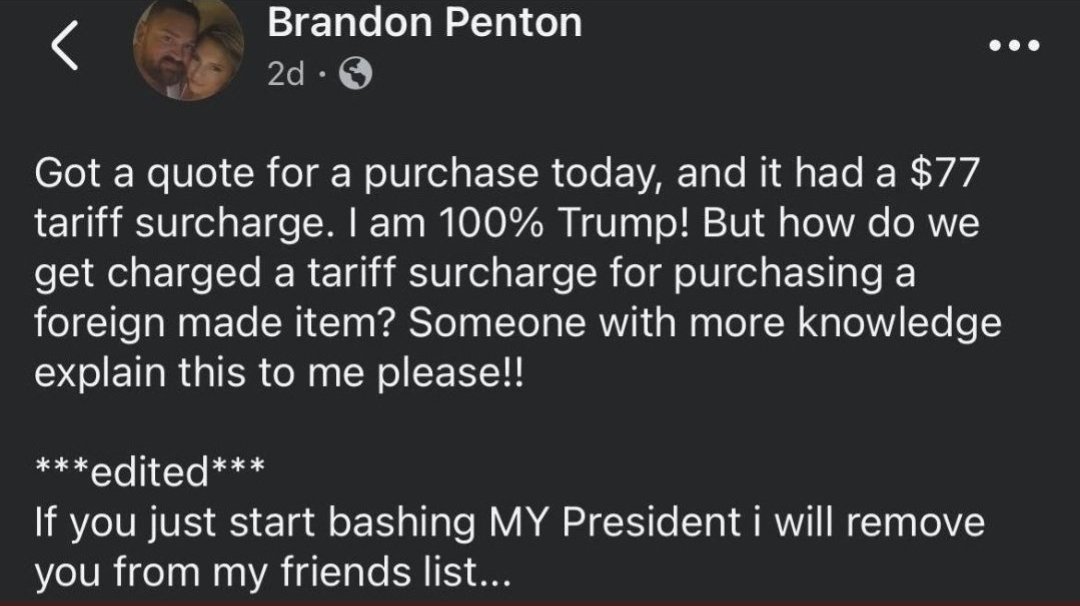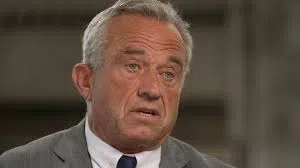BISMARCK, N.D. (North Dakota Monitor) - Health and Human Services Secretary Robert F. Kennedy Jr.'s push to "M...

kfgo.com
North Dakota farmers feeling effects of Robert F. Kennedy’s health kick
Fargo, ND, USA / The Mighty 790 KFGO | KFGO
Paul Jurgens
Apr 28, 2025 | 11:58 AM
Robert F. Kennedy Jr. (CBS News)
BISMARCK, N.D. (North Dakota Monitor) – Health and Human Services Secretary Robert F. Kennedy Jr.’s push to “Make America Healthy Again” is making some North Dakota farmers queasy.
Kennedy’s MAHA movement shuns highly processed foods and dyes. But it also includes an attack on oils made from seeds such as sunflowers and canola, with North Dakota being a leading producer of those specialty crops. These oils are among what has become known as the “Hateful Eight,” oils from canola, corn, cottonseed, grapeseed, soy, rice bran, sunflower and safflower targeted by the MAHA movement.
During a roundtable discussion last week in Fargo with Agriculture Secretary Brooke Rollins, representatives of crops such as sunflowers, canola, soybeans and lentils said the MAHA movement is troubling for their members.
Rollins is part of a MAHA Commission, created by President Donald Trump, with Kennedy as the chair.
John Sandbakken is executive director of the National Sunflower Association, headquartered in North Dakota but representing growers around the country. He said he has heard from farmers in multiple states concerned about the Rollins’ role on the MAHA Commission, led by Kennedy.
“There’s a lot of misinformation out on the internet about seed oils, and we are hoping, as groups, that you will be a strong advocate for seed oils and the healthy benefits that they do bring to our consumers,” Sandbakken said.
Rollins responded that Kennedy is a “unique voice.”
“My commitment is to be a vigorous and persistent advocate for all agriculture, including the great people that you represent,” Rollins said.
The American Heart Institute is among the groups siding with seed oils advocates that they are healthy.
Kennedy is backing beef tallow, a cooking oil that fell out of favor for being high in saturated fat.
An oil that is low in saturated fat is canola oil.
Tim Mickelson, a Rolla farmer who is president of the U.S. Canola Association, encouraged Rollins to “follow the science” on health and ag research.
Mickelson said he fears the anti-seed oil movement is gaining momentum among consumers, which is just one of the problems facing canola growers.
Mickelson farms near the U.S. border with Canada, where most canola is grown.
He said canola prices in the U.S. follow the prices on Winnipeg Commodity Exchange and prices are also affected by the Canadian dollar.
“So if you’re pushing ideas of a tariff on Canada, and it’s hitting canola, you’re going to hit the futures price negatively. You’re also going to hit the Canadian dollar negatively,” Mickelson said. “So canola is getting a double whammy.”
He said even the rumors of tariffs hurt the canola market. “Anytime somebody would sneeze on the Winnipeg Commodity Exchange about a tariff, canola would just be plummeting down,” Mickelson said.
He said the market fell about 20% in March as tariffs with Canada were making headlines.
“Anything that disrupts the flow of canola between the United States and Canada is detrimental to the entire industry,” Mickelson said.
While the canola market has rebounded, he said the tariff talk and market drop was happening as farmers were making final decisions about what to plant in the 2025 growing season.
The United States had a record year for canola production in 2024, most of it coming from North Dakota, according to the U.S. Canola Association. There were 2.7 million acres planted to canola in 30 states last year, led by North Dakota with more than 2.1 million acres.
Mickelson said with farmers concerned about changing consumer demand for canola oil and the timing of the tariff talk, canola acres could be down by 20% this year.
Mickelson said he was grateful that Rollins came to North Dakota.
“I think she has very good intentions on taking what we talked about today and trying to implement the things that need to be changed,” Mickelson said, but acknowledged that she has less influence on the MAHA movement than the health secretary.
“That’s a big challenge,” Mickelson said.














